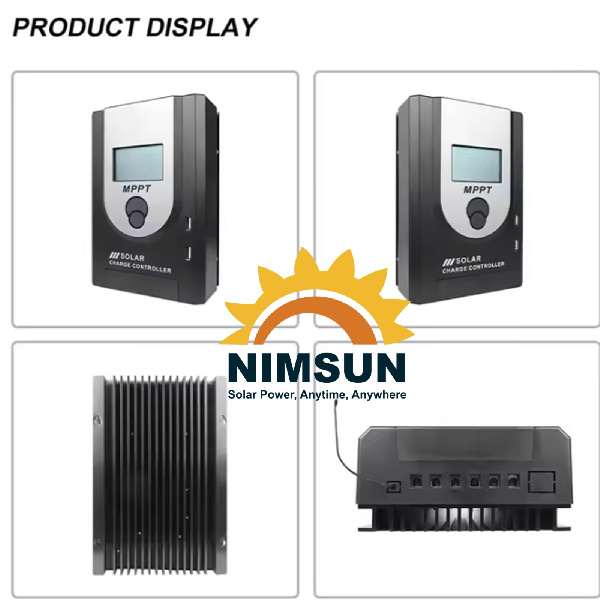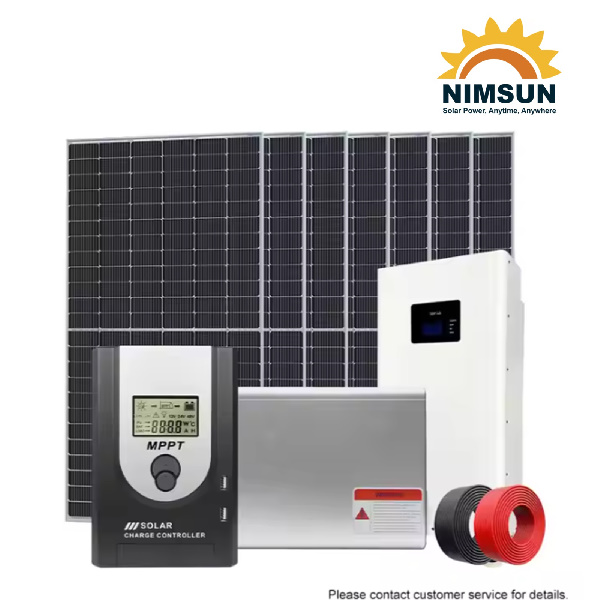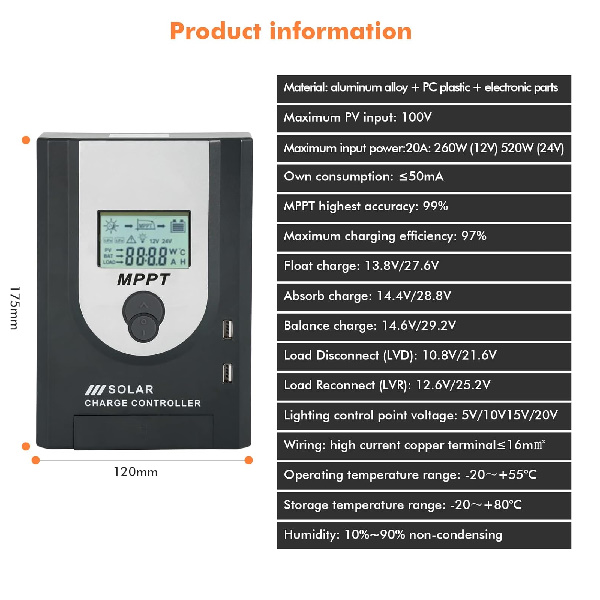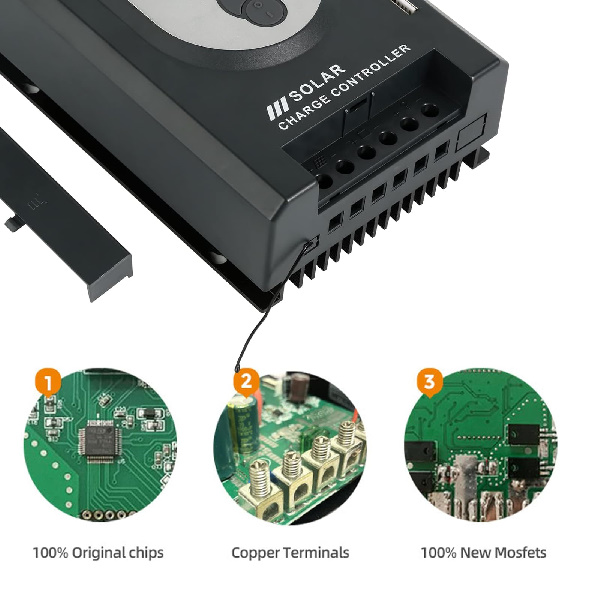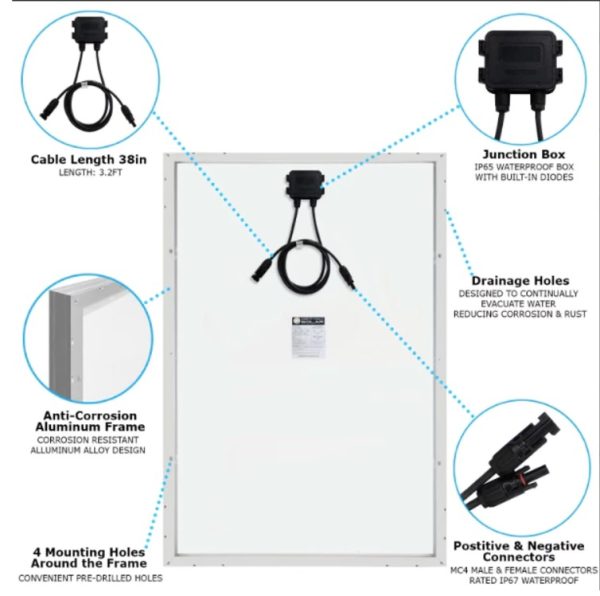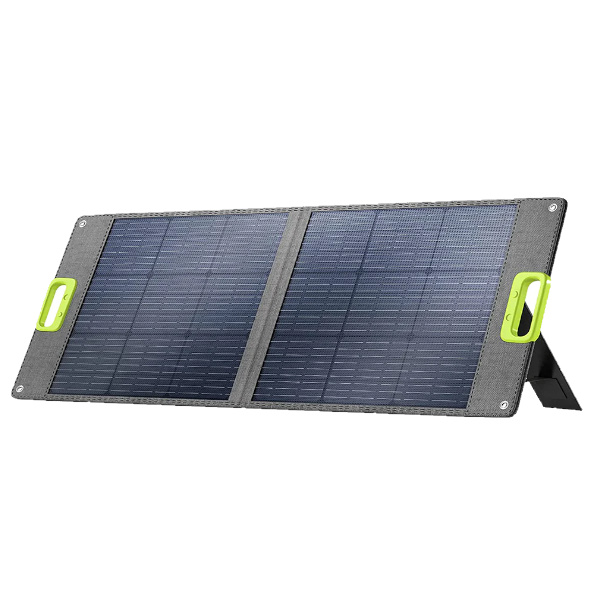Description
Nimsun Solar Charge Controller
A solar charge controller is a vital part of any solar power system. It’s like a guardian for your batteries, making sure everything runs smoothly and efficiently. Let’s break down what it does:
- Voltage Regulation: The primary role of a solar charge controller is to ensure that the voltage from the solar panels matches what the batteries need. Solar panels generate a variable voltage depending on sunlight. The controller steps in to stabilize this voltage to a safe level that won’t damage the batteries. Without it, the batteries could overcharge, which shortens their lifespan.
- Current Management: Just as important as voltage is the control of current. The controller ensures that the amount of current flowing from the solar panels to the batteries is optimal. Too much current can overheat the batteries, while too little means inefficient charging.
- Battery Protection: A good solar charge controller includes various safety features to protect your batteries. These might include protection against overcharging, deep discharging (which can severely damage batteries), and short-circuiting. This layer of protection helps to prolong the life and efficiency of the battery bank.
- Power Management: Advanced controllers can manage the power going to your devices, providing stable and reliable electricity. This ensures that your appliances and devices get a steady power supply without fluctuations that could cause damage.
- Efficiency Boost (MPPT Technology): Some controllers use Maximum Power Point Tracking (MPPT) technology, which continuously adjusts the solar panels’ operating points to deliver the maximum possible power to the batteries. This technology can significantly increase the efficiency of your solar power system.
In summary, a solar charge controller is the brain of your solar power setup, managing and protecting your batteries, and ensuring everything runs efficiently and safely.


